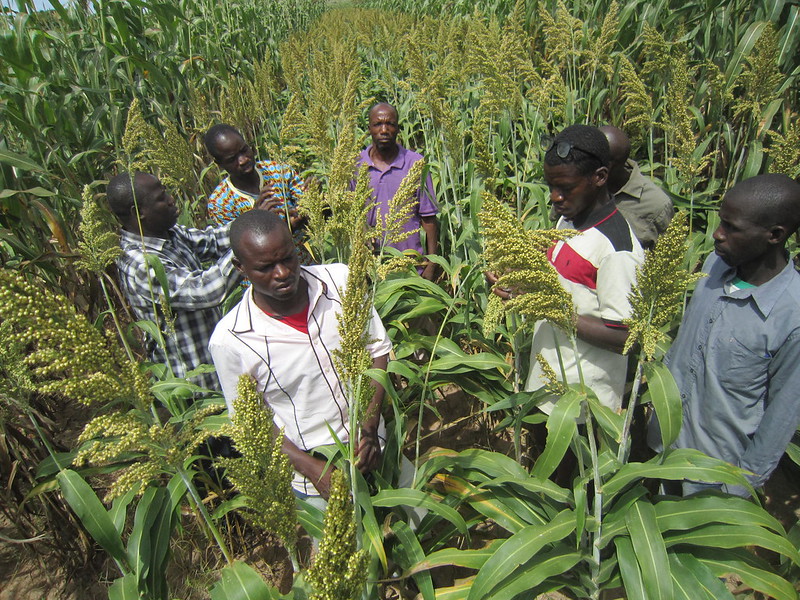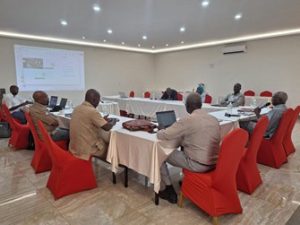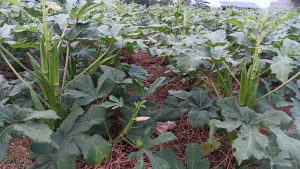ToT Initiative for Good Practices and Quality Seed Use: How TAAT is Building Capacity Food Systems Resilience in Fragile States

Agricultural experts and practitioners from Burkina Faso, Chad, and Mali recently benefited from a specialized training initiative for Agri-business Small and Medium Enterprises (ASMEs) to bolster capabilities in Sorghum and Millet production and post-harvest technologies.
The three-day workshop, held at the International Crops Research Institute for the Semi-Arid Tropics (ICRISAT) Campus in Samanko, Mali, from 23-25 July 2024, was organised under the Transition Support Facility (TSF) Pillar III, of the Technologies for African Agricultural Transformation (TAAT).
The programme sought to foster agricultural transformation in Africa’s fragile contexts and focused on enhancing participants’ proficiency in Good Agronomic Practices (GAPs), which is crucial for optimizing crop yields.
Participants were trained in effective land preparation, advanced crop management techniques, fertiliser application, weed control, and best harvesting and post-harvest management practices.
Mr Boubakray Cisse, a Technology Transfer Specialist and one of the trainers, emphasized that these practices are vital for improving the quality and yield of agricultural products.
The training employed a ”train-of-trainers” approach, equipping participants with the skills necessary to disseminate knowledge effectively within their communities and organizations.
Dr Dougbedji Fatondji, TAAT Sorghum and Millet Compact Leader highlighted the importance of integrating seed production techniques into broader crop management strategies.
“This approach not only enhances agricultural productivity but also empowers young people and women by equipping them with skills in business creation, management, service delivery, and monitoring and evaluation,” shared Dr Fatondji.
The sessions were structured around three main modules: Sorghum and Millet Production Techniques, Integrated Soil Fertility Management (ISFM), and Sorghum and Millet Harvest and Post-Harvest Management.
The ISFM module, in particular, deepened participants’ understanding of sustainable soil fertility practices, emphasizing the conservation and restoration of soil health to support long-term agricultural productivity.
Participants expressed enthusiasm for the knowledge gained from the training.
Ms Aissata Ouedrago, an Agricultural Technician from Burkina Faso, noted that the training would enable her to support producers in the field better.
Mr Abdoulaye Borou from Chad’s Ministry of Agricultural Production and Industrialization appreciated the focus on seed systems, which he believes will lead to significant improvements in his country.
“The training emphasized the need for change, particularly regarding the seed system. Also, the facilitators introduced us to a seed roadmap, which is very promising,” noted Mr Borou.
The TAAT Sorghum and Millet Compact is paving the way for inclusive growth and economic empowerment in regions where agricultural transformation is essential for socio-economic stability.
Moving forward, stakeholders anticipate that the knowledge and skills acquired during the training will contribute to sustainable agricultural development and resilience in the face of climate change and other environmental pressures.
“This initiative represents a concerted effort to address the unique challenges faced by the agricultural sectors in fragile contexts. By enhancing the capacity of trainers and practitioners, the program aims to drive large-scale improvements in agricultural productivity across the beneficiary countries,” said Dr Rebbie Harawa, Director of ICRISAT’s Africa Program.
Established in 2018 as a central pillar of the African Development Bank’s Feed Africa strategy, TAAT represents a transformative initiative to reverse the trend of declining food productivity in Africa through the scaling of modern food production technologies to 40 million farmers across Africa, focusing on supporting young people and women in low-income regions.
TAAT has scaled up the dissemination of heat-tolerant wheat varieties, drought-tolerant maize, high-yielding rice, cassava, high-iron bean, sorghum, millet, orange-fleshed sweet potato varieties and high-quality livestock breeds, and fingerlings to more than 12 million farmers, boosting crop production by an estimated 25 million tonnes.
This increase in food production is a testament to the programme’s effectiveness in enhancing agricultural productivity across the continent.
TAAT acquires cutting-edge technologies from developers and agricultural research institutions led by the CGIAR for several agricultural value chains covering crops, livestock and fisheries, vets them for scaling readiness and integrates them into its electronic technology catalogue.
TAAT engages governments to integrate proven technologies into their large-scale agricultural investment programmes and partner with the private sector to commercialise them.
Recent Stories
Related Stories
- South Sudan: TAAT strengthens the varietal release system
- TAAT Renews commitment to transforming irrigation in Africa
- Africa targets high yields amidst climate resilience as new cereal and legume breeding consortium takes off
- Mozambique: TAAT excites farmers with game-changing technologies
- South Sudan: TAAT facilitates workshop on Strengthening Emergency Preparedness and Response to Food Crisis





